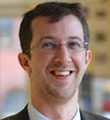10 September 2013
View Webinar Content
Presentation—Introduction to the webinar and panelists
Presentation—Overview of Planning and Financing Sustainable Low‐Carbon Urban Transport
Transcript—Webinar audio transcript
In this webinar—which was part a webinar series on planning and financing sustainable, low-carbon urban transportation—our presenter, Benoit Lefevre of EMBARQ and the Climate and Energy Program (CEP), addressed:
- Accessing available funds for sustainable, low-carbon urban transport
- Understanding available planning instruments and financing opportunities
- Sustainable transport planning and financing sources and instruments (economic, fiscal, planning, investment, regulation, etc.)
- Case studies to exemplify where these tools and resources have been put into practice
- How to analyze key issues to consider when designing a financial strategy for sustainable transport, including understanding and managing financial requirements
- Identifying key partners and stakeholders for financing urban transport
- Identifying barriers and how to combine financial options and technical solutions to achieve optimal results.
Presenter
 Benoit Lefevre, World Resources Institute, Director of the Transport and Climate Program, EMBARQ, Senior Associate, Transport and Climate, CEP
Benoit Lefevre, World Resources Institute, Director of the Transport and Climate Program, EMBARQ, Senior Associate, Transport and Climate, CEP
Benoit Lefevre leads the new Transport and Climate Change Special Initiative at the World Resources Institute (WRI), as well as the Transport Working Group of the Low Emissions Development Strategies Global Partnership (LEDS GP).
Previously, Benoit worked as the director of the Urban Fabric Program (UFP) at the Institute of sustainable development and international relation (IDDRI), a think tank based in Paris and Brussels. He has done research and consultancy on urban energy modeling, urban greenhouse gas (GHG) inventory, integrated land-use and transport policies, real estate and housing markets, Urban green growth, carbon finance and cities, city networks and post-2012 negotiation process. Prior to joining IDDRI, Benoit was visiting scholar at the Global Metropolitan Studies (GMS) and the Institute of Urban and Regional Development (IURD) at the University of California, Berkeley.
Benoit holds a PhD in Economics and Finance from Mines ParisTech and a Master Degree in Environmental and Natural Resources Economics. He did his Post-doctorate at the Center for Energy at Columbia University, New York. Benoit is also a lead author for the Chapter 16: "Cross-cutting Investment and Finance Issues" of the 5th Assessment Report (AR5), Working Group III of the Intergovernmental Panel on Climate Change (IPCC).
